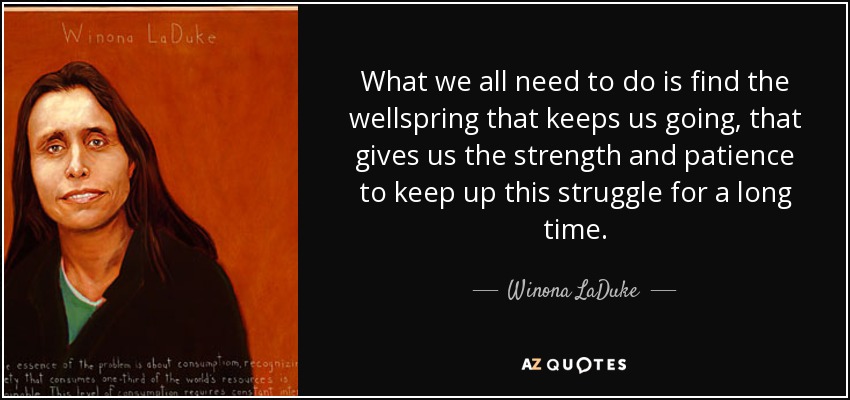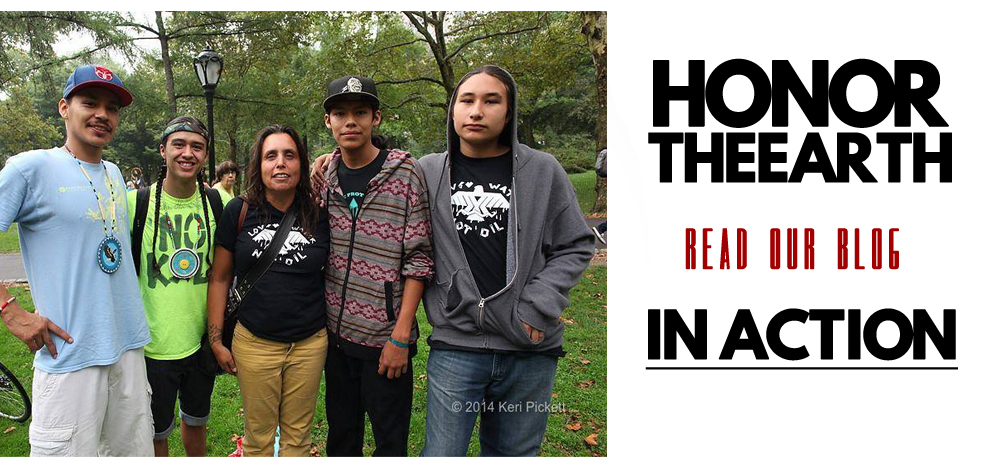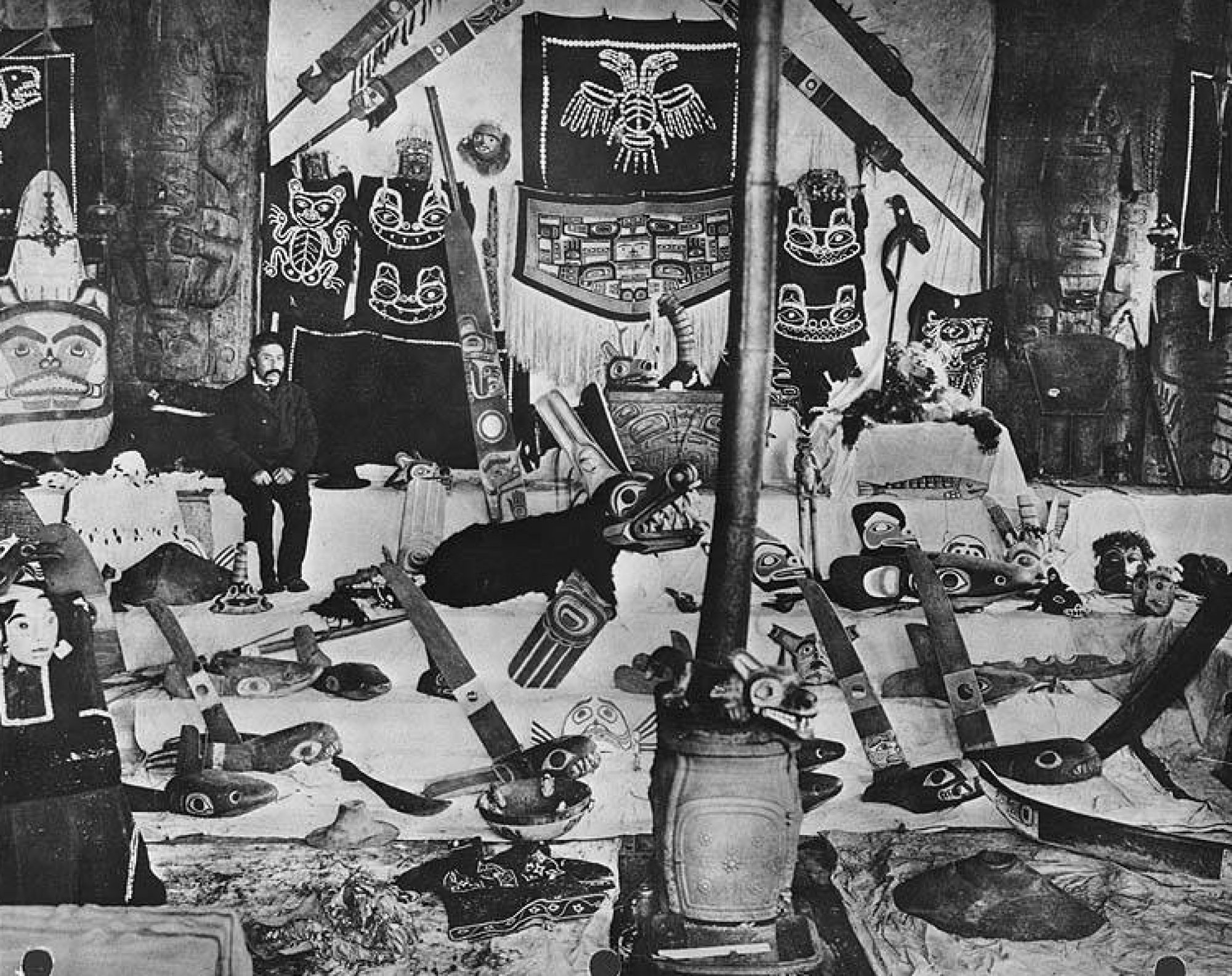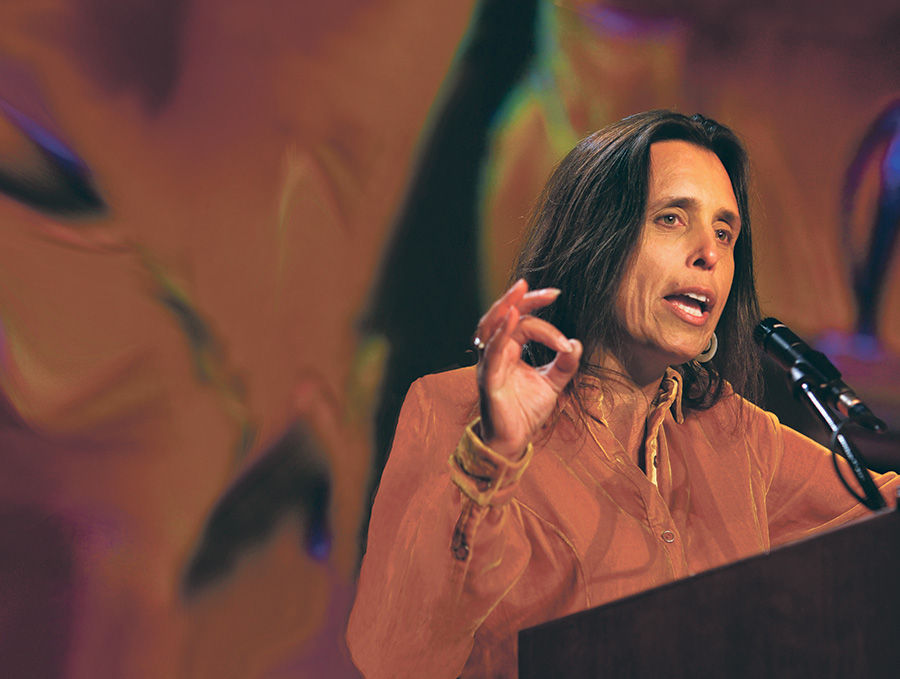Biographical Timeline | Leadership Qualities | Whanganui Water Rights | References
Winona LaDuke’s success in movement-building can be attributed to her personal mix of leadership qualities. The most critical of these qualities are her vision and ability to innovate, her patience, and community-oriented philosophy. These traits have been specifically highlighted because they are the pillars on which LaDuke’s work has been built.
Vision
Winona LaDuke is a visionary, taking innovative approaches in her activism. Her career in raising awareness for indigenous issues began in earnest in 1985, and since then she has shown a remarkable ability to adapt and take advantage of changes in society and technology to further her cause. She has made abundant use of media, and her outreach has evolved over time , now spanning an impressive list. She has written several books (including a novel), essays, and articles, as well as appeared on television in documentaries. More recently, she has extended her campaign to the internet, keeping pace as it quickly became popular. In short, she has entered nearly every single form of media in existence. Her highly creative approach to media has led to recognition on several levels.
LaDuke has also been highly innovative as an environmentalist, with her work on renewable energy systems and issues such as climate change. She has used the broader scope of general environmental problems to draw attention to issues of environmental injustice regarding Indigenous communities. LaDuke rarely approaches issues from the “traditional” standpoint; more often, she paves the way for a new type of solution, often larger in scale and proportion than is expected. Using her background in economics, she has advocated for new energy economic systems based on wind and solar power. By doing so, she hopes to draw both economic and environmental benefit for Native America. On her website, she also supports a crowd-funding initiative for solar energy, claiming that this new, unconventional method could prove to be a more effective means of financing solar energy. This shows a clear trend in LaDuke’s activism of being quick to embrace new and innovative methods to solve old problems. Rather than simply following in the footsteps of other native leaders before her, LaDuke clearly saw a vision of her own and pursued it, resulting in explosive success.

Patience
Patience is one of Winona LaDuke’s most powerful qualities, and it is one of the driving forces behind her success. She exhibited patience from the beginning of her career as an activist, but also in her personal life. When she first moved to the White Earth reservation, for example, she was not accepted by the Ojibwe nation that she felt she belonged to. Rather than explosively confront this rejection and start a movement from the get-go, however, she bided her time. LaDuke worked at White Earth as a school principal and slowly got involved in local issues. She used her education in economics to help the reservation’s community, and then slowly transitioned into activism. Though she had been involved in activist groups since her undergraduate education at Harvard University, she worked patiently over the years to gradually establish a movement among her people, starting small and growing larger until groups from all over the nation became involved. As a Native leader, she tackles issues that have spanned centuries and will likely carry on for years. Attempting to rush these kinds of change would likely end in failure. While LaDuke still pursues great change, she takes her time, serving a higher purpose in looking to posterity.

Concern for her community
Winona LaDuke’s leadership philosophy is highly community-oriented. Instead of leading from the front, her movements are often based within the community. Her first major ventures into activism came from within the local Ojibwe reservation at White Earth. Rather than just attempt to drive change by challenging an adverse outside environment, she has also chosen to focus on strengthening communities, preparing them for these adverse conditions. For example, to a greater extent than other leaders, LaDuke engages with youth. LaDuke has said, “We make sure the kids are part of everything. In most of America, it seems you don’t matter if you’re not between 25 and 50.” With her focus on youth, LaDuke targets She frequently sets up and attends events to simply meet and discuss issues with communities all over America.
In the beginning of her career, LaDuke first devoted her energy to changing her personal community from within. Early on, she faced resistance to the White Earth Land Recovery project. “I need to deal with them because it affects other people where I live,” she said, referring to the power structure in her community.

Winona LaDuke’s first major work as an activist was helping found the Indigenous Women’s Network, a platform that focuses on ensuring Native women have sovereignty over themselves and their environments. It is telling that instead of immediately trying to challenge their white oppressors, LaDuke valued strengthening the Indigenous community as a whole by targeting this deep social issue.

